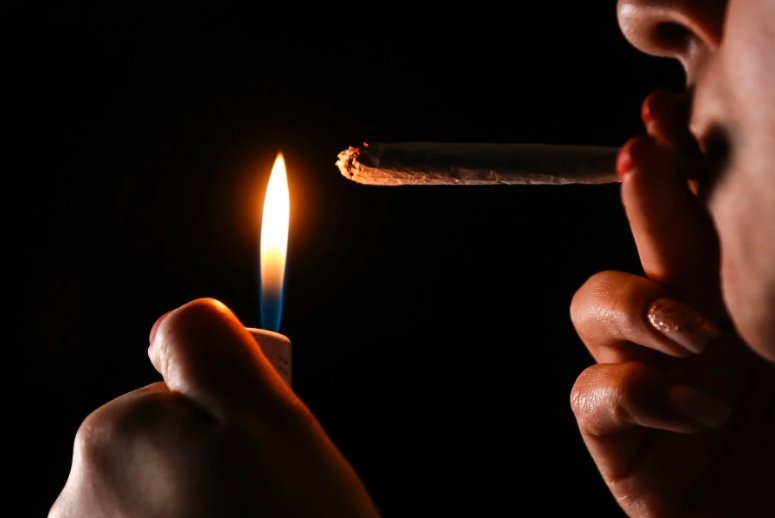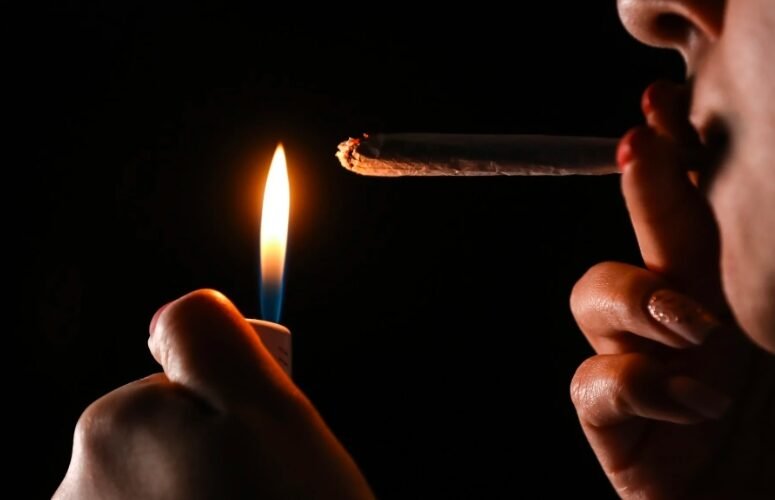Adolescents who use cannabis may not just be at risk for psychosis but might also be attempting to self-medicate their distressing symptoms. A recent study suggests that cannabis use could be part of a complex relationship where underlying vulnerabilities contribute to both psychosis and cannabis use in teens.
New Insights into Adolescent Cannabis Use and Psychosis
The connection between cannabis and psychosis in adolescents has long been debated. While previous studies have shown that young cannabis users are at a higher risk of developing psychotic disorders, the exact cause-and-effect relationship remains unclear. Researchers, led by K. Juston Osborne, PhD, of Washington University in St. Louis, explored different theories through a large-scale study published in JAMA Psychiatry.
Adolescents who used cannabis more frequently reported experiencing symptoms related to psychosis, including increased distress and psychosis spectrum symptoms. Interestingly, these symptoms were more prevalent before teens started using cannabis rather than after, lending support to the idea that these young people might be using cannabis to self-medicate distress caused by early signs of psychosis.

Theories Behind the Link Between Cannabis and Psychosis
Various theories have been proposed to explain the association between cannabis use and psychosis. One prominent hypothesis suggests that cannabis use could disrupt the neurodevelopmental processes in adolescents, leading to the emergence of psychotic symptoms. Another model posits that the connection is not causal but rather stems from shared vulnerabilities—both cannabis use and psychosis might stem from the same underlying factors.
However, Osborne and his team highlighted the self-medication theory as a significant factor. According to this model, adolescents who are already experiencing symptoms of psychosis may turn to cannabis in an effort to alleviate anxiety, dysphoria, or other distressing feelings tied to their mental health.
A Closer Look at the Study’s Findings
The study, which followed 11,868 adolescents over four years, revealed key patterns in the data. Those who used cannabis reported higher numbers of psychosis spectrum symptoms and greater distress compared to non-users. Interestingly, the study found that psychosis symptoms tended to increase before adolescents started using cannabis, reinforcing the idea that cannabis might be a way of self-medicating distress.
However, it’s essential to note that while distress from psychosis symptoms decreased after cannabis use, this does not suggest that cannabis is an effective treatment for psychosis. In fact, the study cautions against interpreting these findings as evidence that cannabis is a safe or helpful option for managing psychotic symptoms.
Mixed Evidence and Complex Relationships
Despite some compelling evidence for the self-medication hypothesis, the study’s findings also presented mixed results regarding the risk of cannabis use contributing to psychosis. The researchers found some indication that increased distress from psychosis symptoms after starting cannabis use did not directly contribute to an increase in psychosis symptoms.
This points to the complexity of the relationship between cannabis use and psychosis in teens. The study’s authors suggest that multiple factors, including genetic vulnerabilities and the impact of cannabis use over time, may all play a role in this association.
Key Data Points from the Study:
- Adolescents who used cannabis: Reported higher psychosis spectrum symptoms and distress.
- Psychosis symptoms before cannabis use: Increased leading up to the start of cannabis use.
- Distress from psychosis symptoms: Decreased after cannabis use began, but this doesn’t suggest cannabis as a treatment.
| Timeframe Before and After Cannabis Use | Psychosis Spectrum Symptoms | Distress from Psychosis Symptoms |
|---|---|---|
| Leading up to cannabis initiation | Increase | Increase |
| After cannabis initiation | No further increase | Decrease |
Understanding the Implications for Adolescents
The researchers caution that while self-medication might explain why some adolescents turn to cannabis, this should not be viewed as evidence that cannabis has no risks. In fact, regular cannabis use, especially in higher quantities or of higher potency, is still strongly associated with an increased risk of psychosis later in life.
Their findings underline the need for a nuanced approach to understanding cannabis use in young people. The combination of self-medication and shared vulnerability to mental health disorders highlights how complex the relationship is. Further research is needed to track adolescents over a longer period and provide a clearer picture of how cannabis use impacts the development of psychosis.




